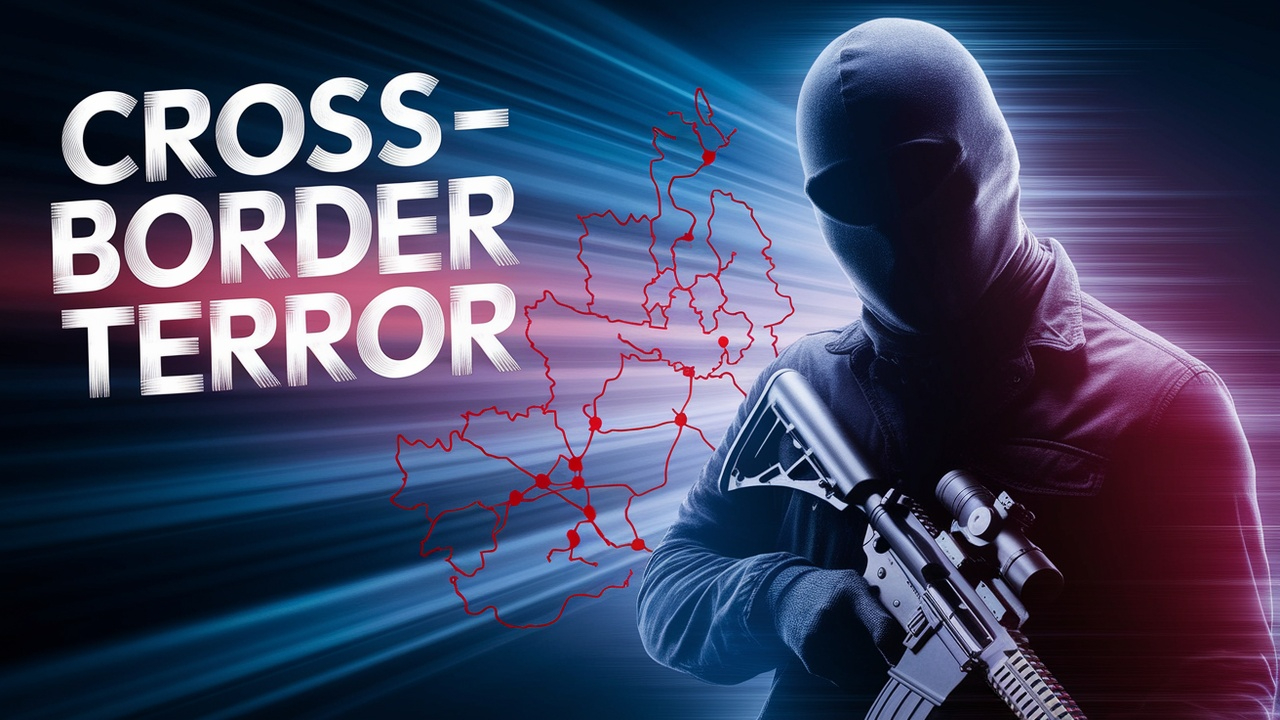Pahalgam Terror Attack Fuels India-Pakistan Tensions
DELHI — On April 22, 2025, a deadly terrorist attack in Pahalgam, Jammu and Kashmir killed 26 tourists, fuelling renewed tension between India and Pakistan.

The assault was directed at the Pakistani Lashkar-e-Taiba’s second proxy, the Resistance Front, the target visitor at Baisaran cave. The Indian Republic blames Pakistan for sponsoring the attack, escalating diplomatic and military clashes with the nuclear-armed neighbor.
Pahalgam Terror Attack Shocks Nation
The Pahalgam panic attack, one of the deadliest in the Kashmir era, occurred in a scenic hayfield trendy with tourists. The shooter opened fire on the inferno, killing 26 people, mostly Hindu tourists, and wounding many. The patriotic Investigation Agency of Bharat will investigate the incident, identifying the two attackers as Pakistan nationals. The attack disrupted tourism, a key economic operator, preventing 48 tourist musca volitans from entering Kashmir.
India’s Republic swiftly retaliated, along with a diplomatic attitude. They canceled the agreement on the Indus Waters, closed the border between Wagaba and Attari, and revoked the visas of Pakistani citizens. Pakistan denies involvement, calling its top chaplain Shehbaz Sharif a “impersonal and clear investigation.”. ‘The pressure is growing as Pakistan’s Islamic Republic closes its airspace for Indian flights, prompting India to consider joint prohibition. “The Islamic Republic of Pakistan must end its support for terrorism,” State Bharat External Affairs Chief S. Jaishankar, facing the United Nations on April 28,.
Roots of Conflict Deepen
The Pahalgam panic attack highlights the longstanding competition between India and Pakistan over Kashmir, a disputed region since 1947, which is disputed between India and Pakistan. Hindustan accuses Pakistan of funding insurgent groups using Lashkar-e-Taiba, which Pakistan denies, and says it provides only moral support for the Kashmiri government. The attack follows a form of aggression, including the 2019 Pulwama attack and the 2016 Uri strike, which prompted Indian cross-strategic activities.
The second defense priest of the Islamic Republic of Pakistan, Khawaja Asif, warns of the possibility of an Indian incursion and mentions the ” credible acumen ” for an attack during the period between 24 and 36. Bharat’s superior priest Narendra Modi allows the armed forces ” full active freedom ” to counter this, raising fears of escalation. Ceasefire violations in the Line of Restrictions and the Islamic Republic of Pakistan’s shooting in all sectors on April 29th. Both countries have a nuclear arsenal, which makes deescalation essential.
Regional and Global Reactions
After the Pahalgam panic attack, the People’s Republic of China (PRC), an ally of the Islamic Republic of Pakistan, called for restraint. In a call with Pakistani Ishaq Dar, Wang Yi, a Chinese missionary, defended Islamabad’s sovereignty and called for a ” swift and fair investigation.”. ‘The United States and the Soviet Union stand in solidarity with India’s Republic and condemn terrorist acts. Near the United Nations. India’s envoy, Yojna patel, criticizes Pakistan’s “unbarred confession ” to training terrorists, referring to Asif’s comment to Sky News.
The attack’s own financial consequences. Pakistan’s Islamic Republic expects losses due to airspace closure, similar to $ 100 million after the 2019 Pulwama attack. The Republic of India’s tourism industry, which is very important for the economy of Jammu and Kashmir, suffers due to the fear of visitors. The anger of society is expressed on the Internet, with Indian users demanding action by the armed forces, and Pakistan’s views are against incrimination. The Pahalgam panic attack has also provoked internal criticism of Hindustan’s Kashmir policies, as well as an analyst’s criticism of the authority’s protection technique.
Path Forward Amid Uncertainty
The Pahalgam panic attack poses a risk of pushing the Bharatiya Janat and the Islamic Republic of Pakistan into a mutual disagreement on the issue of high alert. Diplomacy might have prevented an escalation, but joint skepticism complicates the negotiations. Global mediation, possibly through the United Nations. or an impersonal state may remain necessary to cool the tension. The Republic of India’s ongoing counter-terrorism operations in Jammu and Kashmir, alongside 1,500 detentions due to the attack, in order to establish militant partnerships despite the risk of alienating the local population.
For the last harmony, both states must deal with terrorism and Kashmir’s underlying problems. In order to stabilize the region, cooperation between the Islamic Republic of Pakistan and India on cross-border combativeness is necessary, as India could engage in dialogue. The Pahalgam panic attack underlines the urgency of such a march. If there is no action, the cycle of power and retaliation will prevail, threatening the stability of the South East of Asia. Restraint should be promoted at the international level to prevent catastrophic explosions by nuclear-armed rivals.